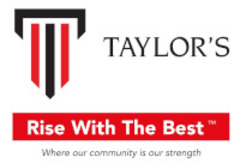The degree programme will cover the methodical processes such as algorithms, in order to acquire, represent, process, store, communicate and access information.
With this degree students have the option to pick Work-Based Learning (WBL) for their third year.
This programme is compatible with the new Taylor's Curriculum Framework that allows students to mix & match study modules.
PRIMARY MAJOR
This component consists of Common Core subjects, which are common modules across a discipline that provides the fundamental knowledge of the discipline.
Common Core
- Database Systems
- Computer Architecture and Organisation
- Discrete Structures
- Object Oriented Programming
- System Fundamentals
- Data Structures and Algorithm
- Human Computer Interaction
- Operating Systems and Computer Networks
- Software Engineering
- Theory of Computation
- Capstone Project (Part 1)
- Capstone Project (Part 2)
- Industrial Training
Specialisation
Compulsory modules
- Understanding Entrepreneurialism
- Machine Learning and Parallel Computing
- Advanced Programming
- Professional Practices and Information Security*
[Choose ONE (1) of the options:]
Option 1: Data Science (Dual Award)
- Statistical inference and modeling
- Data Science Principles
- Data Mining
- Big Data Technologies
Option 2: Cyber Security (Dual Award)
- Computer and Network Security
- Computer Intrusion Detection
- Computer Crime and Digital Evidence
- Wireless Networks and Security
Option 3: Mobile Computing (Dual Award)
- Introduction to Mobile Computing
- Mobile Applications Development
- Wireless Networks and Security
- Internet of Things
Option 4: Artificial Intelligence (Dual Award)
- Computer Vision and Natural Language Processing
- Data Analytics and Machine Learning
- Cognitive Computing and Applications
- Big Data Technologies
UNIVERSITY CORE
This component aims to develop critical thinking, build up social intelligence and cultivate civic responsibility as well as broaden cultural knowledge. These consist of compulsory and nationally-mandated study modules required by the Malaysian Ministry of Higher Education.
- Community Service Initiative
- Hubungan Etnik / Malaysian Studies 3
- Life Skills for Success & Well-Being
- Millennials in Malaysia: Team Dynamics & Relationship Management
- Tamadun Islam & Tamadun Asia / Bahasa Melayu Komunikasi 2
*Students are requested to take Bahasa Kebangsaan A if they do not obtain a Credit for Bahasa Malaysia in SPM.
FLEXIBLE EDUCATION
The Flexible Education component provides student the flexibility to study modules in a related or unrelated field from the same or different school to complement the Primary Major. It may be completed in a form of free electives, an extension, minors or a second major that typically requires at least one (1) semester of student learning time.
[Choose ONE (1) of the below packages:]
Extension
Option 1: Data Science and Option 4 : Artificial Science [Choose ONE (1) of the below Extension packages:]
- Mobile Computing
- Cyber Security
- Internet Technologies
Option 2: Cyber Security and and Option 3 : Mobile Computing [Choose ONE (1) of the below Extension packages:]
Note: Student must choose an Extension package that is different from their chosen specliasations.
Minor
Recommended Packages:
- Creative Media Design
- Broadcasting
- Advertising
- Biotechnology
- Accounting
- Finance
- Marketing
- Management
- International Business
- Entrepreneurship
Choose any Minor package* offered by Taylor’s University. Refer to the Complementary Study Guide for the list of Minor packages.
*Subject to availability.
*Meet min. module pre- & co-requisite.
Second Major
Choose any Second Major package* offered by Taylor’s University. Refer to the Complementary Study Guide for the list of Second Major packages.
*Subject to availability.
*Meet min. module pre- & co-requisite.
Free Electives
Choose any FIVE (5) Free Electives* offered by Taylor’s University. Refer to the Complementary Study Guide for the list of Free Electives.
*Subject to availability.
*Meet min. module pre- & co-requisite.
*All information is subject to change. Readers are responsible for verifying information that pertains to them by contacting the university.



